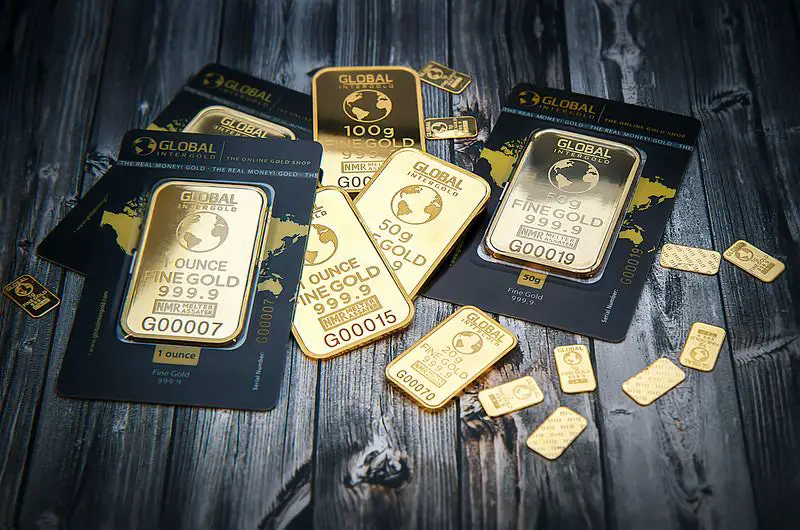Hyperinflation is the rapid, uncontrolled increase in prices caused by an ample cash supply that is not supported by economic growth. The best way to endure it is to get rid of cash, avoid large purchases, and invest in protected securities as precious metals.
The aftershock of the pandemic is an increase in inflation. As the economy reopens, demand goes up, but supply is lacking. This leaves space for prices to go up. We spent almost 2 years in lockdowns and fear, without spending much money.
The result? The highest inflation in the last 13 years, all over the world!
Once restrictions got lifted, people felt relieved and more confident, so they started spending more; traveling, dining out, making big purchases. But the low demand during the pandemic led to a decrease in production. Once the request got high all of a sudden, supply couldn’t satisfy it fast enough. And an opportunity for rising prices shows up.
The normal level of inflation is around 2% per year. The level of inflation measured from October 2020 to October 2021 in the US is 6.2%. In simpler words, if you needed $300 for your monthly groceries last October, today you’ll need $318.6.
Have you ever thought as a kid: Why doesn’t the government print more money? This is a little insight into what would happen if there’s a surplus of printed money.
Although this is not the greatest inflation the world has seen, it’s the biggest shock in prices for more than a decade. All predictions claim that inflation will regularize in 2022, but here’s what you can do in the meantime.
Cash is no longer king
Keeping cash is losing you money. A dollar in 2001 is worth $1.49 in 2021. As inflation progresses, the national currency devalues.
So if you have a large amount of cash sitting in your checking account, consider investing it or at least transferring it to a high-yield savings account.
Ask for a raise
The gross pay increased by 4.7% in the last year, but the hourly wage decreased by 1.9%. Essentially, you’re making less money than you were a year ago. If you’re not getting a raise in 2021 of at least 6%, you’re officially getting a decrease in payment.
How to approach this topic with your employer? First, get ready with facts; use this article to get informed. Know that you’re making the same wage, but it doesn’t have the same value as last year. Plus, the prices have gone up, so you’re losing even more money.
Pay your dues
The inflation hits everyone – and even banks! The best way to get back on foot is to increase the interest rates. This will affect the amount of debt you have sitting. The best approach is to pay it off as soon as possible.
Experts claim that there’s a chance the Federal Reserve will start increasing interest rates as soon as spring 2022. Higher interest rates mean higher borrowing costs, so people will spend less. This is one of the measures to slow down the economy and decrease inflation.
Transfer your emergency fund
Inflation is not a short-term expense, so you shouldn’t go for your emergency fund to cover the increase in prices.
Instead, if you’re keeping it in cash to have it on hand, consider putting it in a market fund. We’ve discussed the Vanguard option, which makes money accessible and growing simultaneously.
After all, you’ve worked hard to fund your emergency savings, so you wouldn’t want to lose money out of it!
Be self-sufficient
The consumer price index (CPI) calculates the cost of a basket of food, goods, and services. It noticed the fastest growth rate since June 1982, with 0.8% a month and 6.8% a year since November 2020.
Gasoline prices have gone up 58.1%, while energy has gone 33.3% up in a year.
The solution is simple: be as much self-sufficient as possible. While you can’t stop using gas and energy, you can produce your own food. Consider biking instead of driving, planting a basic vegetable and fruit garden. Look into solar panels for water heaters and energy production if you’re up for an investment.
Revise your portfolio
During inflation, your portfolio might suffer some changes. The best hedge against inflation is a portfolio with 60% allocated to stocks and 40% to fixed income.
With the problems in the supply chain and the cost of materials rising, businesses can either cover the difference or pass it on to their customer. So when picking where to invest, look for companies that can afford to raise their prices during the inflation – and still be in demand.
Bonds might not be the smartest choice. While they are low risk, they yield significantly less than the current inflation rate. Most long-term bonds average 5 to 6% return.
Adjust your spending
Consumerism is a significant problem of the 21st century, and inflation is the right time to adjust your spending habits. Some states freeze the prices of essentials, but indulgences will never decrease.
Try installing a basic budgeting app to track how much you’re spending on things you can definitely live without. This is not the time to spoil yourself or make big purchases. Delay getting a new car or house for at least a year – if you can afford to wait.
Invest in inflation-protected securities
If you’re looking for the safest investment, that’s Treasury Inflation-Protected Securities. They pay a fixed interest rate, but it is adjusted according to the current inflation or deflation. In addition, TIPS accommodate the principal value according to the Consumer Price Index.
While they’re not a good choice in times of deflation as you’ll be losing money, TIPS are a good choice during inflation.
Avoid investing in gold

Contrary to popular opinion, gold is not a good hedge against inflation. Gold is supposed to raise its price while the dollar devalues. But recent data has shown us the opposite. Gold marked negative instead of above-average returns.
In the late 1970s, the inflation rate in the US was 7.7%. Investors turned to gold as an asset that won’t depreciate. And they were right- they got an astonishing 35% return.
But gold has also performed poorly during inflation. In the early 1980s, the inflation rate was at 6.5%. Gold declined nearly 10%!
For years gold was the first choice for investors trying to keep the inflation risk away from their portfolio. Today, financial experts advise investors to turn their money towards commodities that have a more consistent record during inflation.
Think of real estate, REITs, oil, power, etc.
FAQs
Are we headed for hyperinflation?
At the moment, no country in the world is threatened by hyperinflation. The US Treasury predicts that the inflation rate will drop to normal in the second half of 2022.
Will gold protect me from inflation?
Financial experts and long-time investors suggest avoiding gold during the current inflation. This comes after gold reached a record price of $2074.88 per ounce in August of 2020. The average price in November of 2021 was $1865.35.
What causes inflation?
Two reasons cause inflation: fast-rising prices and money devaluation. However, the increase of demand for limited goods and services and the lack of supply are the main culprit. The current inflation rate is primarily due to the pandemic which disrupted the supply chain.
What year was inflation the lowest?
The lowest inflation rate in the US occurred in June of 1921. The -15.80% inflation rate comes after the staggering 23.7% inflation rate a year before.
The Great Depression of the 1930s was the record in deflation. During this time, the deflation rate hit 10%, the stock market crashed, and over 30% of the banks collapsed.
Bottom line
There’s not a promised point in time when we will stop suffering the consequences of the pandemic. Small businesses bankrupted, many were left unemployed, and investments fell through.
The current inflation is the last blow. But it brings light to how important it is to pay attention to personal finances. By creating a safety net on time, educating yourself of the potential risks and gains, you’d survive this period more comfortably.
Investing in yourself is the most important investment you can make. Whether it is a profitable skill or an investment strategy, it’s an asset that does not depreciate.
Just think of how our ancestors could have survived some of the major crashes in the economy if they had just a bit more knowledge about finances. Luckily you have thousands of free resources today to prevent making irrational decisions.
Have you experienced any effects of the current inflation? What did you do to secure your assets?

